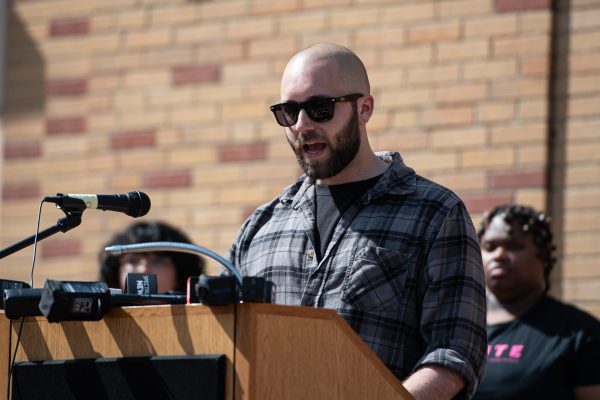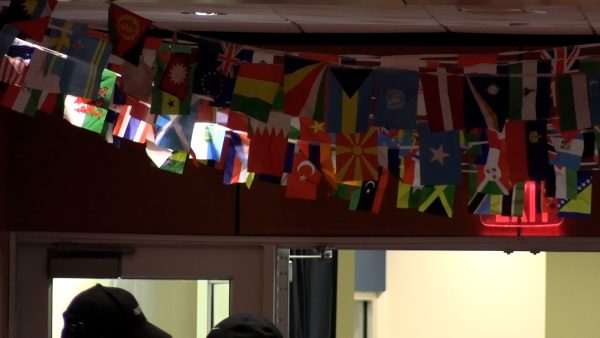Kent State speaker stresses importance of water conservation
November 15, 2013
Peter H. Gleick, Ph.D, president of the Pacific Institute spoke to an audience of about 300 students, Kent State faculty and the public at The Kent State University Hotel and Conference Center. Dr. Gleick’s visit was a part of the Annual Water Research Symposium at Kent State University.
Dr. Gleick spoke about the impact of water, not only in the United States but also the world. He stressed that not every community in the world as has access to clean water.
“1.2 million people die each year from water related diseases,” Dr.Gleick said.
According to Gleick, America has it good. He shared how we haven’t dealt with water-related diseases for years and that we are one of the few countries that is able to actually drink tap water. We are also one of the few countries on the planet that does not have to worry about having water available for our basic needs.
To connect his speech back to our local environment, Gleick spoke about Lake Erie and the Cuyahoga River. In the late ’60s the Cuyahoga was known for catching on fire and being contaminated, but Ohio’s knowledge of water preservation has helped these bodies of water remain clean.
Dr. James Blank, the interim Dean of the College of Arts and Sciences shared his opinion on water and our environment.
“Water is the blood of Ohio; 95 percent of the surface water in the US is from the Great Lakes,” Blank said.
He explained the importance of Lake Erie to our community. The lake controls our local climate so therefore it is important to pay attention to it and make sure that we are doing what we can to preserve it.
Dr. Grant McGimpsey, the Vice President for Research at Kent State, expresses that the global importance of water is really about connecting the dots. A lot of research shows why we are in the position that we are with water and connecting the dots shows how we can improve. Gleick credits a lot of issues with water to population growth.
“As the population grows, we start to outgrow our local water resources,” Gleick said.
Gleick said that in order to preserve the water supply we are going to have to innovate ways to do the same things, such as using less water.
“We are using too much water to do what we want,” Gleick said.
Water also impacts things we need, like food. There needs to be a stable water supply in order for agriculture to survive. Gleick explained the importance of cities and farmers banding together and collaborating when it comes to the water supply.
Contact Shelbi Jones at [email protected].























